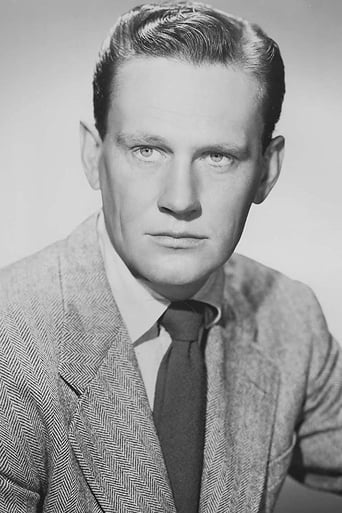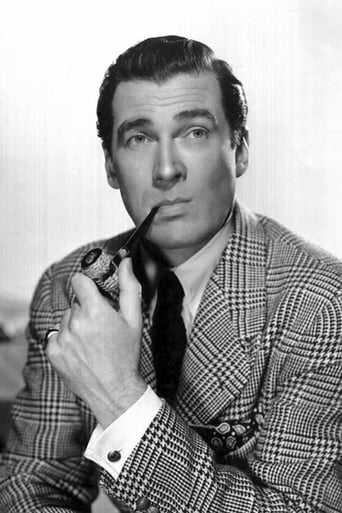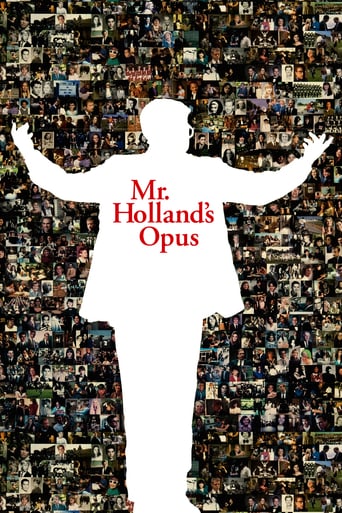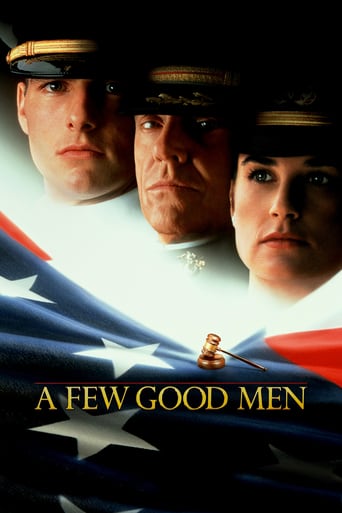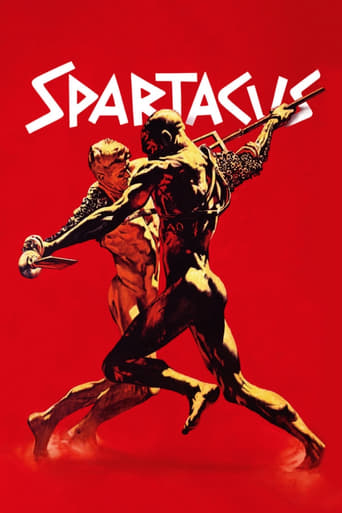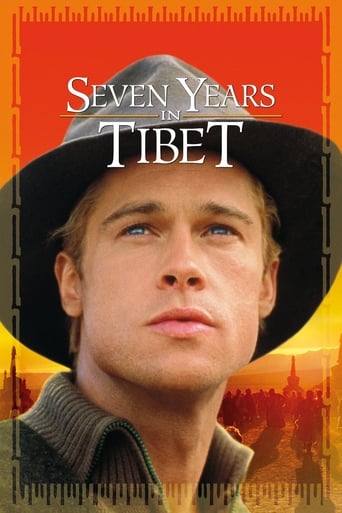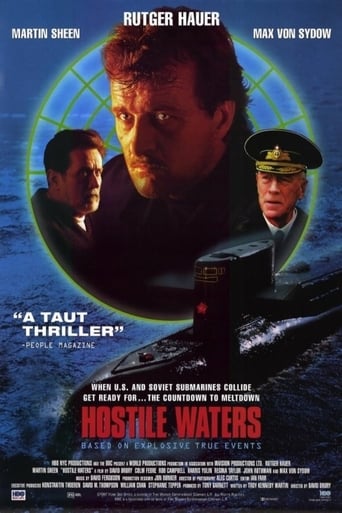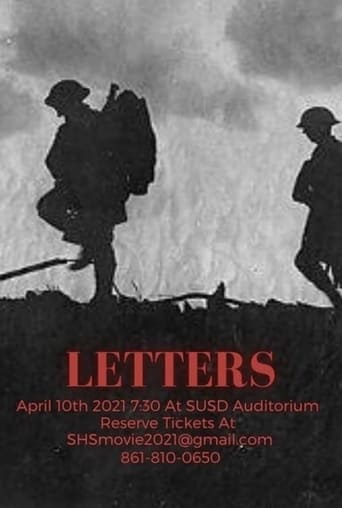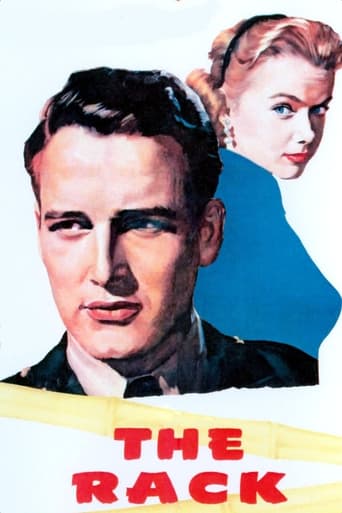
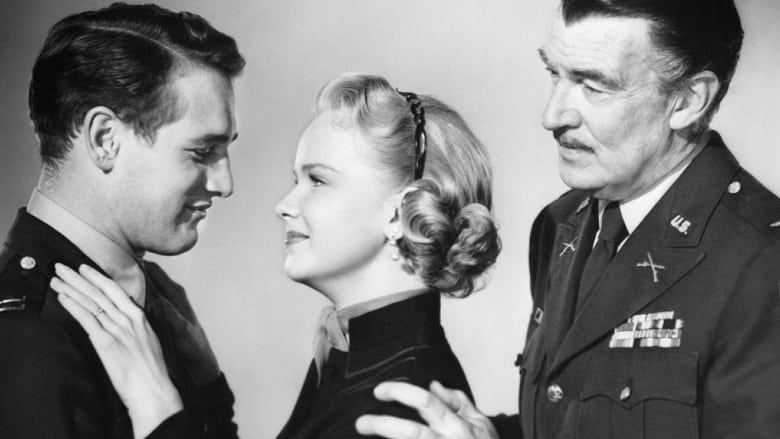
The Rack (1956)
Army Captain Edward Hall returns to the US after two years in a prison camp in the Korean War. In the camp he was brainwashed and helped the Chinese convince the other prisoners that they were fighting an unjust war. When he comes back he is charged for collaboration with the enemy. Where does loyalty end in a prison camp, when the camp is a living hell?
Watch Trailer
Cast
Similar titles
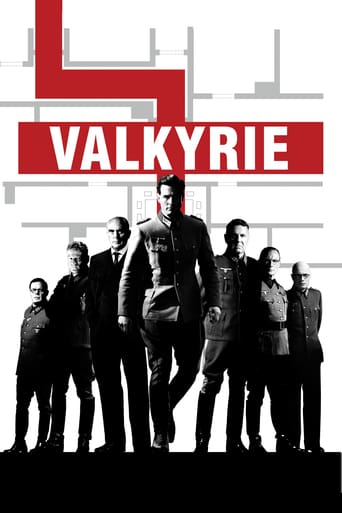
Reviews
A movie that not only functions as a solid scarefest but a razor-sharp satire.
It’s fine. It's literally the definition of a fine movie. You’ve seen it before, you know every beat and outcome before the characters even do. Only question is how much escapism you’re looking for.
It really made me laugh, but for some moments I was tearing up because I could relate so much.
Actress is magnificent and exudes a hypnotic screen presence in this affecting drama.
Rod Serling was writing a lot of great scripts in the 1950's. While some of his scripts are great like Patterns which is brilliant, this one while good is not quite great. This film was originally written for live television and was on the US Steel Hour. Thank goodness MGM decided to film it, for several reasons.Paul Newman who career was just starting to boom did this and the underrated "Somebody Up There Likes Me" in 1956 and his performance here is the glue for this one. So much support here with a very limited performance from Lee Marvin to a brilliant effort from Edmund O'Brien. This is a case where the actors elevate the script into something more special than it ought to be.What would have made it better would have been a conversation Newman recalls with Marvin in his final speech at the end of the film. If only that conversation had been included in this film, as I felt like something was missing because it wasn't.Paul Newman was fortunate to come along into his prime at a time when Serling was in his prime. Arnold Laven who directed this was mostly a television director. If there had been a director like Walsh with this one, the film might have been better. This is one time where it appears MGM was not willing to spend the money to make this one better, and it does suffer a bit for that. Still, any fan of Serling, Newman, Marvin should consider this one a must see.
There are Many Things that are Powerful in this Court Martial Movie. An Early Paul Newman Performance, and a Fine, Important Supporting Cast, but there is a lot of Ambiguity as the Film Kowtows to the Military Behind the Scenes Watchdogs and Fudge Facts about the True State of Affairs Concerning POW's and Collaboration with the Enemy.It was a Fact that 1 in 7 POW did Collaborate, not the Miniscule "Only 40" that the Film would have You Believe and so on. Also, the Intertwining of the Soldiers Home Lives and Their Lack of Love from Father is more of a Dramatic Inclusion for a Stage Play than would seem Necessary with an Approach Toward Battle Hardened Officers and NCO's.This Muddle makes the Movie Easier to Watch as a Drama but it All gets a bit Confusing with the Overlap. As a Film it is a Sombre Affair and is a Curioso of its Time and is Interesting in that Respect, but it Reeks of Propaganda and Rug Sweeping about a War that had just Ended and this Seems like a Rush Job by the Military and a Half-Hearted Effort by MGM to get the Thing Over with as it was not going to be Box Office, and the Fact that the Movie is so Little Known Today is an Indication of its Inaccuracy and its Ability to Entertain and Enlighten.
This movie is well worth watching. It concerns a Korean war POW who returns home and is subject to a court-martial on charges of collaborating with the enemy. Paul Newman, as war veteran Capt. Edward Worthington Hall Jr., shows signs of the powerful actor he would later become, and the supporting cast is excellent. I particularly liked Wendell Corey as the somewhat reluctant but duty-bound prosecutor. The Korean War seems to have been a particularly grizzly affair where torture was common and the Geneva Convention flouted. In post Abu Ghraib 2006, torture is of current interest and gives "The Rack" added relevance. In showing that a strong and decorated officer like Captain Worthington can be broken, the unfortunate message is that torture does work on occasion. We all know that each of us has a breaking point, but the concept explored here is what makes some people, Captain Worthington in this case, succumb before that point is reached. The emphasis is on mental torture - trying to figure out just what the crucial vulnerability is in a personality and exploiting that. For Worthington it was loneliness, his mother having died young and his father being a martinet. The thing that pushed him over the edge was losing his brother in the war. But, by his own admission, he never felt that he had reached his breaking point. The message is that most of us are stronger than we think and we rarely get pushed, or push ourselves, to our limits and beyond. The issues are argued in detail in the court-martial and one conclusion posited by the defense is that maybe the country was in some part responsible for what happened to Captain Worthington - the soldiers were never trained for what they encountered in the war and the populace was pretty much ignorant about who we were fighting and the reason for it. As the Iraq war grinds on Santayana's quote comes to mind, "Those who cannot remember the past are condemned to repeat it."With such strong themes and excellent performances, why is this only a good and not a great movie? For me it was a lot of little things. Like when Lee Marvin comes into a room in the hospital where the patients are watching a movie and he comes up behind Newman and hangs a noose around his neck with a "Traitor" sign attached. When Newman pursues Marvin to talk with him, Marvin flees down the hallway. Some bothersome things here. How did Marvin make this item? Being on crutches it seems unlikely he was carrying this thing around with him at all times just waiting for the right moment. And Marvin was presented as an aggressive macho man, so his flight in the face of potential confrontation was out of character. This scene could have been much more effective. A pivotal point Newman makes in his defense is "My father never kissed me." To single that out as a way a saying that his father was remote and unaffectionate seemed odd to me. There are a lot of loving and affectionate fathers who never kissed their sons. That line just seemed in there to set up the scene in the car where Newman's father does kiss him, but that awkward out-of-character part of the scene in the car seemed forced to me. Just as actors should never seem to be acting, screenplays should never have such obvious plot devices.All told, this is an admirable film coming so soon after the Korean war and forcing consideration of issues that I'm sure the country was eager to forget.
This is an early effort of Paul Newman's -- made after Silver Chalice but not released until after Somebody Up There Likes Me -- and it shows. Newman tries too hard and, indeed, most of the performances of the fine cast are below their usual levels, elementary and overspecific, done by the numbers, as if aimed at an audience of high school kids. Rod Serling's script isn't entirely to blame. There is less of his poetics, only the occasional "horizon of endurance limits" or whatever. But the plot is fully sketched in, with nothing left to the imagination. What is visualized and covert in Cool Hand Luke, is here overt and not visualized, the action being confined to a courtroom and one or two other sets. A major problem with The Rack is the direction. None of the performances is modulated. The witnesses speak rapidly and clearly and loudly, in a way no one does in life off the screen. When Newman's character is called upon to mumble part of his testimony because of its intimate and personally revealing nature, he does so with his hand in front of his mouth, as if the audience were too insensitive to otherwise realize he was mumbling. Worse, his defense counsel tells him openly that we can't hear him clearly because he is holding his hand in front of his mouth -- in case we missed the fact that he was holding his hand in front of his mouth before. All that's missing to drop the scenario down to an elementary school level is for Newman to look up and ask something like, "You mean they can't hear me because I'm holding my hand in front of my mouth?" And for defense counsel to reply, "That's right. You're holding your hand in front of your mouth, so they can't hear you." Yet, the issue dealt with -- should we hold an otherwise brave man responsible for finally giving up in the face of nearly hopeless odds -- is treated with some maturity. The ending doesn't leave us with the kinds of easy answers we might expect. None of the cast or crew are at their best here, but it's not a boring film either.

